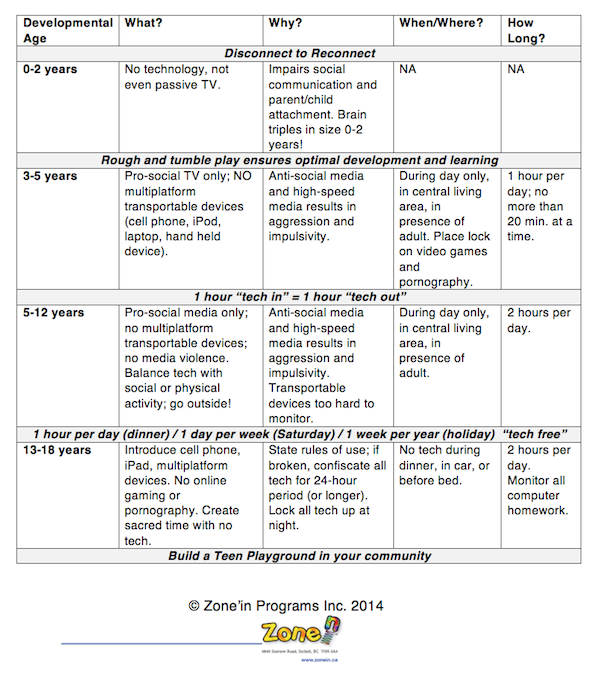
When was the last time you took a hard look at your digital usage behavior? For example, how many hours a day do you spend on your phone, laptop, tablet or other device? Have you considered the challenges this behavior brings to your children?
As a behavioral health expert, grandmother and mother, I have become increasing aware of the importance technology plays in everyday life. As a young mother, I can recall more times than I care to admit when I used television for a sitter. Sesame Street was a welcome respite along with Saturday morning cartoons and, later, after-school movies. In contrast, parents today are bombarded with a kaleidoscope of media that beckons them like a winning slot machine to be used.
This blog takes a broad look at the positives and negatives of digital technology and provides understanding on the scientific-based guidelines for how children might use technology in healthier ways and how we might interact with the, In addiction signs to watch out for Internet addiction, and tips on how all of us may use our devices in healthier ways.
The effects of technology on children come with both benefits and costs. On a positive note, Jim Taylor, Ph.D. writes in Psychology Today that exposure to technology is not all bad.
According to the article, “Research shows, for example, video games and other screen media improve visual-spatial capabilities, increase attention ability, reaction times, and the capacity to identify details among clutter. Also, rather than making children stupid, it may just be making them different. For example, the ubiquitous use of Internet search engines is causing children to become less adept at remembering things and more skilled at remembering where to find things. Given the ease with which information can be found these days, it only stands to reason that knowing where to look is becoming more important for children than actually knowing something.” Looking at the positive aspects of video games, you can definitely find ones that do help with certain children's abilities and there are plenty of people who sell used video games that are highly rated and helpful for teaching children how to think through problems.
Taylor states that not having to retain information in our brain may allow us to engage in more “higher-order” processing such as contemplation, critical thinking, and problem solving.
The influence of technology isn’t limited to children. During a recent trip to Seattle with the Network of Independent Interventionists I visited Restart, a center devoted to Internet gaming addiction. Like sex or food, digital addiction is a process addiction. With this addiction, one must learn to live with healthy moderation, as one cannot be totally void of connectivity.
While there, I attended a seminar given by Internet addiction expert Hillary Cash, Ph.D. that opened my eyes to how we inadvertently facilitate extreme connectivity amongst our selves and our loved ones. As a behavioral science expert, this seminar resonated with how I work with families. It occurred to me that I should incorporate questions that include the use of digital technology when talking with worried family members to learn how it is used by individual family members.
Beyond individuals, it’s increasingly concerning how children are spending too much time being connected to digital media and not enough time on playing, using their imagination and engaging in face-to-face interaction.
There is no substitute for face-to-face interaction
As Sherry Turkle writes in “Alone Together: Why We Expect More from Technology and Less from Each Other”, parents and caretakers are also guilty of being emotionally unavailable while in the presence of their loved ones.
Haven’t all of us been guilty of or witnessed a parent texting while talking to their loved one? Looking into a screen is no substitute for face-to-face interaction.
Recently I came across two books titled, "The Einstein Syndrome: Bright Children who Talk Late" by Thomas Sowell and “Late Talkers” by Stephen M. Camarata who is Professor in the Department of Hearing and Speech Sciences at Vanderbilt School of Medicine According to Steven Pinker, Johnstone Professor of Psychology, Harvard University, and author of The Language Instinct and How the Mind Works In Late-Talking Children, the world’s expert on the syndrome offers good sense, humane advice, and the latest science to such parents—while reminding his fellow scientists that it raises fascinating questions for our understanding of language, genetics, development, and the organization of the human brain."
—
Likewise, author Bruce Feiler, of “The Secrets of Happy Families” recently wrote an op-ed article in The New York Times titled, “Hey Kids, Look at Me When Talking”. This piece pointed out research study after study with findings that showed media use of 8-18 years old is now more then 7.5 hours per day. Further, a Pew Research study from April 2015 found a quarter of teenagers are online almost constantly. In addition, among 12-17 years old, texting has become the primary means of communication outstripping human contact.
Physical, Behavioral and Emotional Affects
Although some technological advances cause us to be distracted, overly stressed and increasingly isolated, the key is to analyze how technology affects us physically, behaviorally and emotionally. For example, do technologies help your child build positive, meaningful relationships or do technologies hinder this process? Are you able to better communicate, listen and share because of technology in your life?
As an educator and licensed clinical social worker, I am delighted to see more and more research and resources surfacing to help address the positive and negative affect of technological advances.
Since children are our future, I wanted to share with you several recommendations for how our children are supposed to be exposed to the digital world and how we as caregivers and parents can examine our own behaviors. The first is from The Zone and gives us digital guidelines for the growing child.

With respect to young children (1-3), The Hanen Center, one of the countries leading speech therapy groups, gives us five suggestions on how we might talk to our young children to increase language development.
1. Be face-to-face – One of the best ways to let your child know that you want to talk to him is to be face-to-face. This means joining your child at his physical level, whether that’s on the floor together, facing him in his high chair, or sitting together at the table. Make eye contact with your child and let him know that you are listening and interested. By following your child’s lead, you let him know that you are interested in what he has to say, which will make him want to have longer conversations with you.
2. It takes TWO to talk – Talking with your child doesn’t mean that you should do all of the talking! Pause and wait for your child to send you messages. And when it’s your turn to talk, talk about what interests your child. By following your child’s lead, you let him know that you are interested in what he has to say, which will make him want to have longer conversations with you.
3. Use simple, grammatical sentences – Young children benefit from hearing proper sentences (like “give it to Mommy” or “do you want a cookie?”), as opposed to sentences that have missing words (like “ta ta Mommy” or “baby want cookie?”). The grammar in sentences helps young children figure out what the words mean and how they are used together.
4. Use your voice, face, and hands – Gesturing with your hands and face (such as pointing, shrugging your shoulders, or frowning) helps young children understand the meaning of your words. And your voice can also help with word meanings – such as making your voice rise upwards as you say the word “up”.
5. Any time is conversation time! – You don’t need special toys or activities to encourage your child’s language. You can have conversations at the grocery store about what you need to buy and pick out food together. You can talk about what you see as you go for a walk around the neighborhood. And bath time is a great time for conversation! Spending time talking about your child’s interests throughout the day is what makes a difference.
By allowing your child to lead and talk about his interests, you will have many opportunities to provide your child with good language models. And your child will get the message that you are an interested conversation partner. These interactions will help your child tune-in to words, and promote his vocabulary and overall language development.
References
1 Weisleder, A. & Fernald, A. (2013). Talking to Children Matters: Early Language Experience Strengthens Processing and Builds Vocabulary. Psychological Science, 24(11), 2143–2152.
2 Carey, B. (October 15, 2013). Talking directly to toddlers strengthens their language skills, Stanford research shows. Stanford News. Retrieved from http://news.stanford.edu/news/2013/october/fernald-vocab-development-101513.html.
What does all this mean for raising your children? The bottom line is that too much screen time and not enough other activities, such as reading, playing games, and good old unstructured and imaginative play, will result in your children having their brains wired in ways that may make them less interactive with parents and other children
If you are Concerned about someone a you loves use of technology here are some behaviors to look out for. (3-4 yes responses suggest abuse; 5 or more suggest dependency addiction)
Does you or someone you know:
1. Spend Increasing amounts of time spent on computer and internet activities
2. Repeatedly have Failed attempts to control their behavior
3. Exhibit a heightened sense of euphoria while involved in computer and internet activities
4. Crave more time on the computer and internet
5. Neglect friends and family-Isolate
6. Feeling restless when not engaged in the activity
7. Being dishonest with others
8. Computer use interfering with job/school performance
9. Feeling guilty, ashamed, anxious, or depressed as a result of behavior
10. Changes in sleep patterns
11. Physical changes such as weight gain or loss, backaches, headaches, carpal tunnel syndrome
12. Withdrawing from other pleasurable activities such as exercise, dating etc.
http://www.netaddictionrecovery.com/the-problem/signs-and-symptoms.html
LASTLY, BE A ROLE MODEL FOR YOUR FAMILY.
For folks like you and I who use technology daily in our personal and professional lives there are, behaviors WE All CAN DO to lessen our attachments to technology (computers, phones and even watches). Remember the digital journey like everything we do is a journey full of progress not perfection. Be gentle with your souls as you join me in spending more human face-to-face time and less screen time. Try it you might like it.
1. Have a digital free family meals
2. Schedule a phone free hour every day-just turn the whole thing off
3. Check your email twice a day
4. Turn your phone off in meetings –doodle instead it inspires creativity
5. Do not have multiple screens going at once
6. No texting while driving
7. No TV screens going for the backseat passengers –play word games with your children
8. Unplug from all devices for one whole day during the weekend. (Your kids will be amaze them)
9. Take a walk or hike. Pay attention to Your Posture
10. Create a gadget free zone in your home
11. Smile, Create a smile with technology send someone a nice email or compliment someone
12. Prioritize your online presence- decrease the essentials
13. Do a Random act of kindness
14. Turn off the internet for a day (for example on Mothers day Grandpa Johnnie and his 8 year old grandson went to Loews and made a train table and set up a train set that had been in the family for over 30 years which Grandma Wzy took her almost 2 year old granddaughter Alex swimming and played ball.
Please share in the comments what you are doing to reduce your attachments to technology and increase your interactions with your loved ones and the world.
 Dr. Louise Stanger has over thirty years experience as a college professor, researcher and licensed clinician working with families and individuals who experience substance abuse and mental health disorders. She serves as the Director of All About Interventions and as President of The Sydney D Holland Foundation. She has been performing Collaborative Interventions with families since 1980. She continues to explore the efficacy of treatment strategies such as Motivational Interviewing, Cognitive Behavioral, Solution Focused Coaching, Family Systems and 12 Step Facilitation.
Dr. Louise Stanger has over thirty years experience as a college professor, researcher and licensed clinician working with families and individuals who experience substance abuse and mental health disorders. She serves as the Director of All About Interventions and as President of The Sydney D Holland Foundation. She has been performing Collaborative Interventions with families since 1980. She continues to explore the efficacy of treatment strategies such as Motivational Interviewing, Cognitive Behavioral, Solution Focused Coaching, Family Systems and 12 Step Facilitation.


























